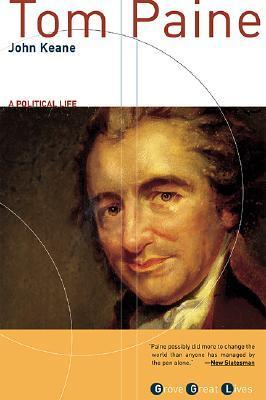
Samuel Adams: Father of the American Revolution
Book Description
A rebellious fire ignites in the heart of colonial America, and one man dares to fan the flames. Samuel Adams emerges as the mastermind behind the movement, orchestrating bold acts of defiance that electrify a nation hungry for freedom. With courage as his armor and the pulse of revolution in his veins, Adams battles tyrants, unites patriots, and risks everything for liberty. As tension builds and loyalty is tested, his relentless ambition sets the stage for a clash that will change history forever. Can one man truly spark a revolution, or is he just a voice in the storm?
Quick Book Summary
"Samuel Adams: Father of the American Revolution" by Mark Puls provides an in-depth look at the life and legacy of Samuel Adams, exploring how he became a central architect of the American Revolution. The book chronicles Adams’s early influences, his rise as a political agitator, and his unyielding commitment to the cause of liberty. Puls portrays Adams as not just a protestor but a visionary who leveraged his persuasive talents to mobilize discontent, organize resistance, and frame the ideological underpinnings of revolution. Through tales of courage, political intrigue, and unrelenting activism, the book demonstrates how Adams transformed local outrage against British policies into a unified movement for independence. Puls captures Adams’s pivotal role in uniting disparate colonies and championing the principles that would define a nation.
Summary of Key Ideas
Table of Contents
The Making of a Revolutionary Leader
Samuel Adams’s journey into revolutionary leadership began with the personal and political influences that shaped his worldview. Born into a family steeped in local politics and Puritan ideals, Adams developed a keen sense of justice and a deep suspicion of authority. Early exposure to political activism and a failed business career pushed him further into public affairs. As discontent brewed in Massachusetts over British taxation, Adams recognized the need for organized opposition and took the lead in galvanizing Boston’s resistance.
Catalyzing Colonial Resistance
Adams mastered the art of turning local grievances into widespread unrest, orchestrating protests such as the Stamp Act riots and the Boston Tea Party. Through a combination of clandestine meetings and public oratory, he harnessed the anger of common citizens, connecting their struggles to broader issues of constitutional rights. His ability to channel collective outrage into coordinated action was crucial in escalating tensions between Britain and its American colonies. Adams’s brand of activism made resistance not just possible, but inevitable.
Strategic Communication and Grassroots Organizing
Communication was one of Adams’s most potent weapons. As a prolific writer, editor, and propagandist, he shaped public opinion through pamphlets, newspaper articles, and speeches. Recognizing the importance of information, he formed networks like the Committees of Correspondence, facilitating intercolonial dialogue and unity. Adams understood that revolutionary zeal needed to be carefully stoked, so he tailored his messaging to rally disparate groups – from merchants to artisans – under a common cause against British tyranny.
Forging Unity Among the Colonies
Uniting thirteen diverse colonies presented a formidable challenge, but Adams’s diplomatic skills helped bridge regional and ideological divides. He cultivated relationships with leading figures in other colonies, building trust and consensus. His efforts culminated in the formation of the First Continental Congress, where he championed collective action as the only viable means to secure colonial rights. Adams’s vision extended beyond local protest; he sought to create a continental alliance prepared to defend itself and declare independence if necessary.
Shaping the Ideals of American Liberty
Beyond strategy and organization, Adams’s most enduring impact lay in articulating and promoting the values that would shape the new nation. He insisted on the primacy of liberty, representation, and self-governance, inspiring citizens to demand rights that were not merely inherited, but universal. Even amidst setbacks and personal risks, Adams remained resolute, convinced that the fight for freedom was a moral imperative. His legacy, as captured by Puls, rests on his unwavering commitment to revolution and his foundational role in defining the principles of American democracy.
Download This Summary
Get a free PDF of this summary instantly — no email required.





